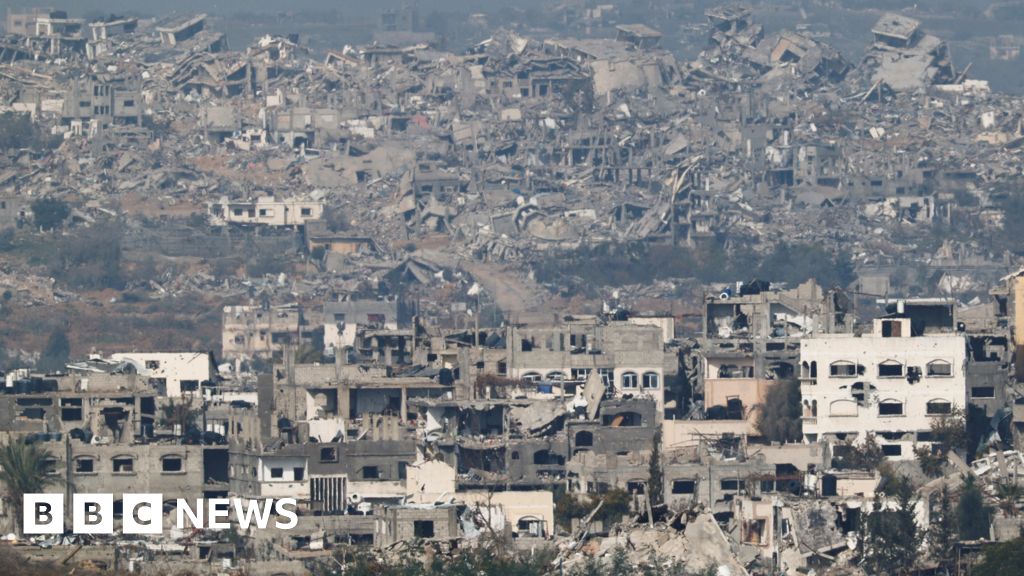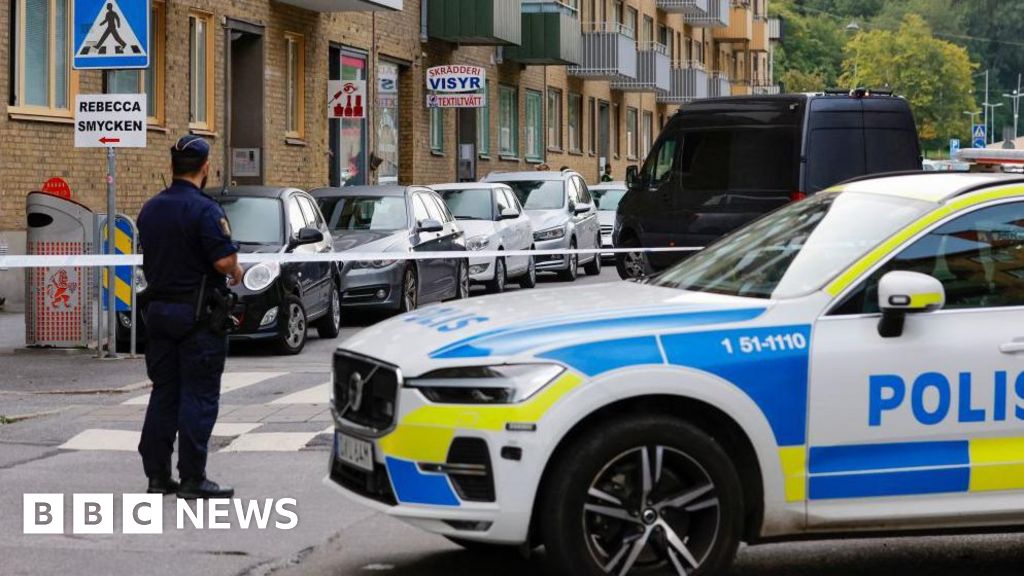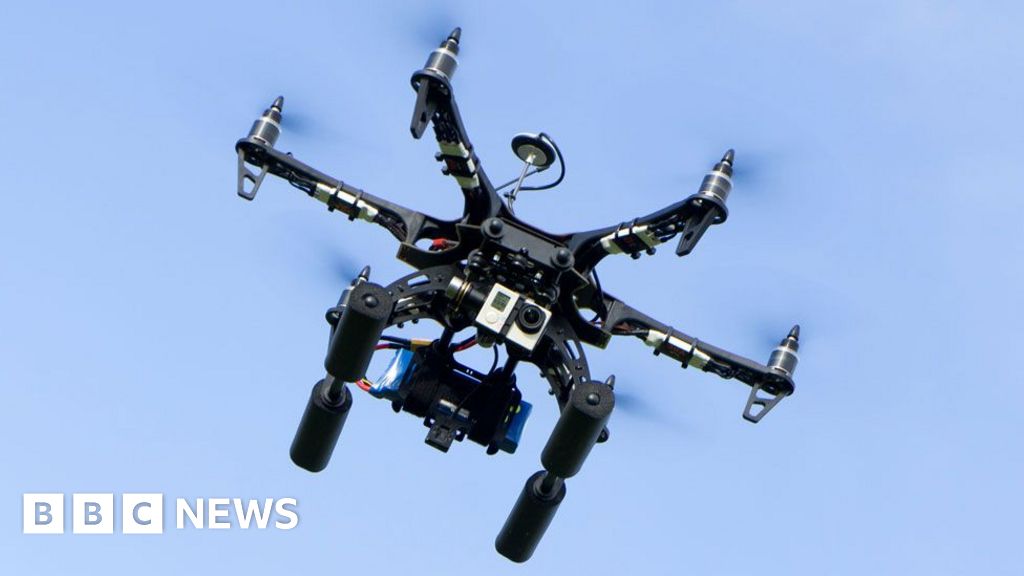ARTICLE AD BOX
image source, AFP
image captionYahya Jammeh went into exile in 2017 after 22 years in powerIn our series of letters from African journalists, Sierra Leonean-Gambian writer Ade Daramy considers the fallout of an unlikely alliance.
It is an oft-quoted maxim that politics makes strange bedfellows.
Can you imagine US President Joe Biden forming an alliance with the Republican Party of Donald Trump?
Well, something akin to that has happened in The Gambia where erstwhile enemies have formed a pact ahead of elections in December.
The parties of current President Adama Barrow and his predecessor Yahya Jammeh have joined forces.
To understand just how incongruous this seems, you need to understand how the last election played out.
image source, AFP
image captionMany were overjoyed when Yahya Jammeh lost the 2016 electionA coalition of parties formed to unseat Mr Jammeh, who had been in power for 22 years.
Much of his rule was marked by harsh authoritarianism and, judging by the testimonies at the not-long-completed sittings of the Truth, Reconciliation and Reparations Commission (TRRC), a litany of human rights abuses.
Given this background, it was a shock when Mr Barrow, the coalition candidate, won with 43% of the vote, to Mr Jammeh's 40%.
Mr Jammeh initially accepted the result, even going on TV to concede, but he later reneged.
The regional bloc, Ecowas, stepped in - sending in troops and forcing Mr Jammeh to go into exile in Equatorial Guinea, where he remains.
image source, AFP
image captionMr Jammeh and his APRC party still retain support in some parts of the countryThere was much rejoicing, but the ruling coalition faced some hiccups, and President Barrow fired his vice-president, Ousainou Darboe, in 2019.
Mr Darboe is a veteran politician and leader of the United Democratic Party (UDP), under whose ticket Mr Barrow had contested the 2016 election.
It was obvious Mr Barrow would no longer be welcome in the UDP, so earlier this year he struck out on his own, launching the National People's Party (NPP).
'Betrayal of public trust'
So far, so ordinary. That is until at a packed press conference earlier this month, the NPP extended a formal hand of friendship to Mr Jammeh's old Alliance for Patriotic Reorientation and Construction (APRC) party.
It was a political bombshell.
Some critics of the deal have since been branded hypocrites given the whispers that they had also been making overtures to the ex-president's party, which still retains support in some parts of the country.
But it was the response from The Victims' Center that held resonance.
image source, AFP
image captionRelatives of victims of the Jammeh era want the former president to face justiceThe group was launched two months after Mr Jammeh fled to give a voice to the many victims of his regime. It labelled the move as treacherous, shocking and deplorable.
"It represents the worst betrayal of public trust," it said, referring to Mr Jammeh as a "tinpot dictator" whose APRC government "orchestrated the crimes of mass killings and raped innocent mothers and daughters, and fathers and sons for 22 years".
More about The Gambia's truth commission:
It accused Mr Barrow of turning his back on justice.
The Victims' Center group is hoping this is something the TRRC will deliver - though it is now in doubt whether its report and recommendations will be published before the election.
Nonetheless, the political pact does not seem as unfathomable to some Gambians as it does to outsiders.
A Daramy
Critics of what is termed 'Maslaha syndrome' see it as granting forgiveness at the expense of justice - a way of sweeping things under the carpet"
A colleague told me: "You really wouldn't understand; it's 'the Gambian way'.
"Why have the word 'reconciliation' as part of the TRRC's name, if we are not willing to reconcile?" he said.
"Don't forget," he added, "We are the country that has truly embraced the concept of 'Maslaha'."
This is the principle of "public interest" in Islamic law.
Critics of what is termed "Maslaha syndrome" see it as granting forgiveness at the expense of justice - a way of sweeping things under the carpet.
Gambians, of course, view it differently and as something uniquely theirs. The word has been adopted in all The Gambia's major languages.
They point to years of peaceful coexistence in a small mainly Muslim country as evidence that it works - seemingly forgetting the crimes of the Jammeh era.
image source, AFP
image captionWhen Adama Barrow won the 2016 election he was the candidate of a coalition of seven opposition partiesFor the APRC's interim leader, Fabakary Tombong Jatta, this was the motive behind the deal with the NPP.
"The Gambia must put an end to harassing and traumatising our former leaders who have left office," he said.
"We should pay no heed to the wishes of the International Criminal Court, which only prosecutes African, not Western leaders, even those that have committed atrocities."
Having said that, Mr Jammeh is unlikely to return before the election, fearing arrest for breaching the terms of his exile and inflaming the political scene ahead of what is already shaping up to be a hotly contested election with 18 parties registered so far.
But if the NPP-APRC gamble pays off, perhaps he will come home one day and Maslaha will win the day.
More Letters from Africa:
Follow us on Twitter @BBCAfrica, on Facebook at BBC Africa or on Instagram at bbcafrica

 3 years ago
39
3 years ago
39








 English (US) ·
English (US) ·